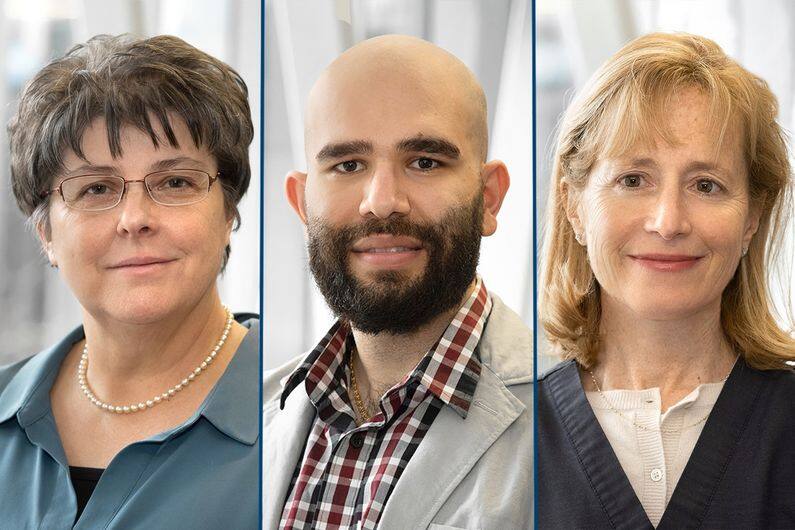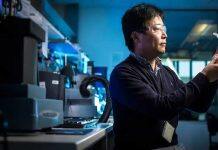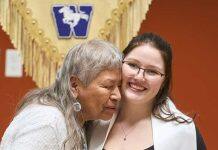This taboo cancer takes 9,500 lives every year in Canada. Manuela Santos, a researcher at the CHUM Research Centre, and her colleagues, Drs. Carole Richard and Roy Hajjar, want that to change. Together, they are studying the influence of the intestinal microbiota on the surgical treatment of colorectal cancer.


Thanks to a combined $1M in funding from several funding agencies, this scientific trio and their teams hope to improve the intestinal healing of colorectal cancer patients by using prebiotics and probiotics to modify the gut flora before surgery. In Canada, it is the only research group to take this approach.
They believe that modifying the gut microbiota could improve the restoration of the intestinal barrier, prevent infection, and reduce the risk of recurrence of the cancer after the operation,
For patients, that would mean a shorter time spent at the hospital, faster return to treatments, increased survival rates, and overall improved quality of life.
“This disease is the third most frequently diagnosed cancer in Canadian adults and it’s the second leading cause of cancer death. At the CHUM, we see more than 500 patients every year and, for the most part, they require surgery to heal properly,” stated Dr. Carole Richard, Chief of Digestive Surgery at the CHUM and professor at the Université de Montréal.
This delicate surgery brings its share of complications, including intestinal leakage and serious infection.
In the beginning there was … stool
“For us, it all started with stool samples from our patients who had undergone an operation. We wondered if some bacteria in their intestinal flora could affect the risk of complications or recurrence,” said Dr. Richard.
The clinician was able to rely on the expertise of researcher Manuela Santos, a professor at the Université de Montréal and the director of the Nutrition and Microbiome Laboratory at the CHUM Research Centre.
“We know that certain bacteria promote the development of colorectal cancer, whether it’s by producing toxins that damage the cells of the colon, or by promoting an accumulation of DNA mutations or inflammation in the intestine, for example,” said Manuela Santos.
To facilitate the identification of these harmful bacteria and modelling on a large volume of data, sampling was broadened to include patients admitted for colorectal cancer surgery who consented to the use of their stool for research purposes.
The biobank of inflammatory and neoplastic diseases of the digestive tract was born.
Thanks to this research infrastructure, scientists were able to show using mouse models that the composition of the gut microbiota from certain patients prior to surgery predisposed them to risks of post-operative complications and cancer recurrence.
“We were really surprised by these preliminary results. By continuing our research, we hope that three years from now, we’ll be able to identify a patient at risk of post-operative complications by analyzing the composition of their intestinal flora. We could then limit the risks by modifying it with prebiotics,” stated Manuela Santos.
The solution in patients’ plates?
“We know that a person’s diet impacts the composition of their gut flora. Our project began with very complex basic research protocols, but maybe the solution is simpler and can be achievable through diet,” indicated the researcher.
“Adjusting our patients’ diets before surgery could be considered. We could even continue this approach during post-operative care to accelerate the return to a healthy intestinal microbiota. Is it feasible? That’s what our research will determine in clinical trials in humans, which we hope to start in two or three years.”
This promising therapeutic approach becomes all the more important given the shifting profile of colorectal cancer in recent years.
Statistics of the Canadian Cancer Society, published in 2021, showed that increased screening for the disease helped reduce the number of cases in older adults. However, cases are increasing in adults under the age of 50 in Canada and the United States, who generally are not screened for this disease. The cause of this increase is not currently understood.







































